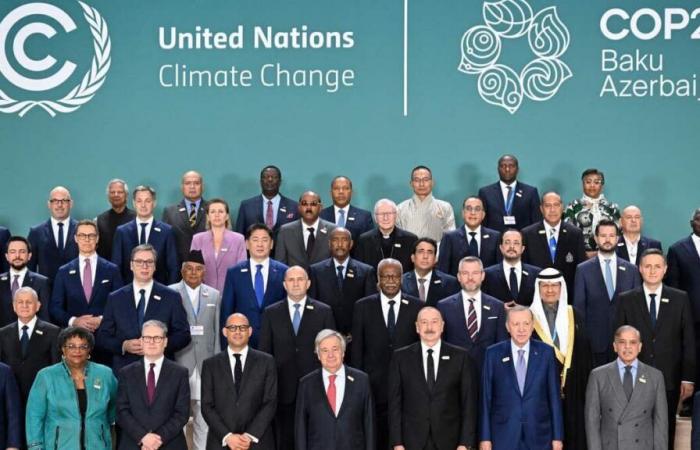Two days before the end of COP29 in Baku, rich countries are being asked for between 440 and 900 billion dollars per year in climate aid for the developing world, the ministers responsible for unblocking the negotiations reported on Wednesday.
• Also read: COP29 at “a critical moment”: five days to find $1 trillion
• Also read: Oil bosses at COP29, NGOs denounce the presence of lobbyists
• Also read: COP29: positions still distant on climate finance
Developed countries, for their part, are still silent on the amount they are ready to contribute, beyond their previous promise of 100 billion annually, for the “New Quantified Collective Objective” (NCQG according to its English acronym) for climate finance. that the UN conference must establish.
“We have heard different proposals for the costing” of public aid from rich countries, “of 900 billion, 600 billion and 440 billion,” Australian Minister Chris Bowen declared in plenary session.
He reported on the consultations held the day before with his Egyptian counterpart Yasmine Fouad, in an attempt to unblock years of negotiations on this figure.
None of these figures come from developed countries, according to several delegates contacted by AFP.
“All developing countries agree that we need at least 600 billion per year in public funds” from rich countries, explains Iskander Erzini Vernoit of the Moroccan IMAL institute in Baku.
“We hear in the corridors figures of 200 billion offered” by rich countries: “it is unimaginable, we cannot accept it,” blasted Bolivian chief negotiator Diego Pacheco, giving voice in plenary to the name of the developing world.
These different amounts represent only part of the total need of 1,300 billion dollars annually demanded by developing countries to deploy solar panels, close coal-fired power stations or even build dikes to face rising water levels.
Rich countries, for their part, are demanding to know how their public money will be associated with other sources of financing (private funds, new global taxes, for example on air and maritime trade, etc.) before advancing their own figure.
Europe and the United States, obliged to contribute by the UN climate convention by virtue of their responsibility as historical polluters, insist that China, South Korea, Singapore and Gulf countries implement pot more precisely and transparently.
Beyond that, developing countries, including many over-indebted nations, are insisting that the final agreement provide that money from rich countries be provided in the form of donations rather than loans.






